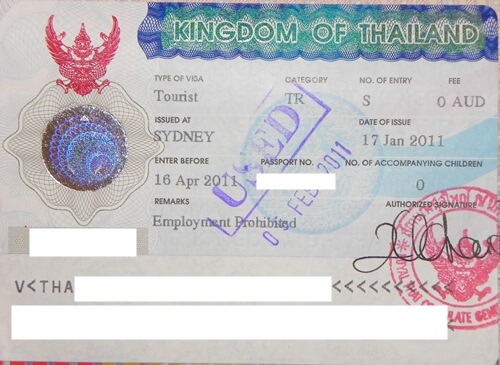
If you’re planning a trip to the beautiful country of Thailand, you may find yourself asking this question. Understanding the visa requirements is essential to ensure a smooth and hassle-free journey. In this article, we will explore the various types of visas available for visiting Thailand, the process of obtaining them, and any necessary documents needed. Whether you’re going for a short vacation or a long-term stay, we’ve got you covered with all the information you need to know about visiting Thailand.
Curious to know more about the visa requirements for visiting Thailand? Look no further! In the upcoming article, we will delve into the details of each type of visa, including tourist visas, business visas, and retirement visas. We will also discuss the application process, the necessary documents to submit, and any special considerations to keep in mind. Whether you’re a first-time visitor to Thailand or a frequent traveler, this article will provide you with all the essential information you need to navigate the visa requirements and have a memorable trip to this captivating country. Stay tuned! Visiting Thailand can be an exciting and fulfilling experience, but before you hop on a plane, it’s crucial to understand and comply with the country’s visa requirements. Depending on your purpose of visit and the duration of your stay, there are various types of visas available, each with its own set of rules and regulations. In this article, we will guide you through the visa requirements for visiting Thailand, providing you with essential information to ensure a smooth and hassle-free trip.
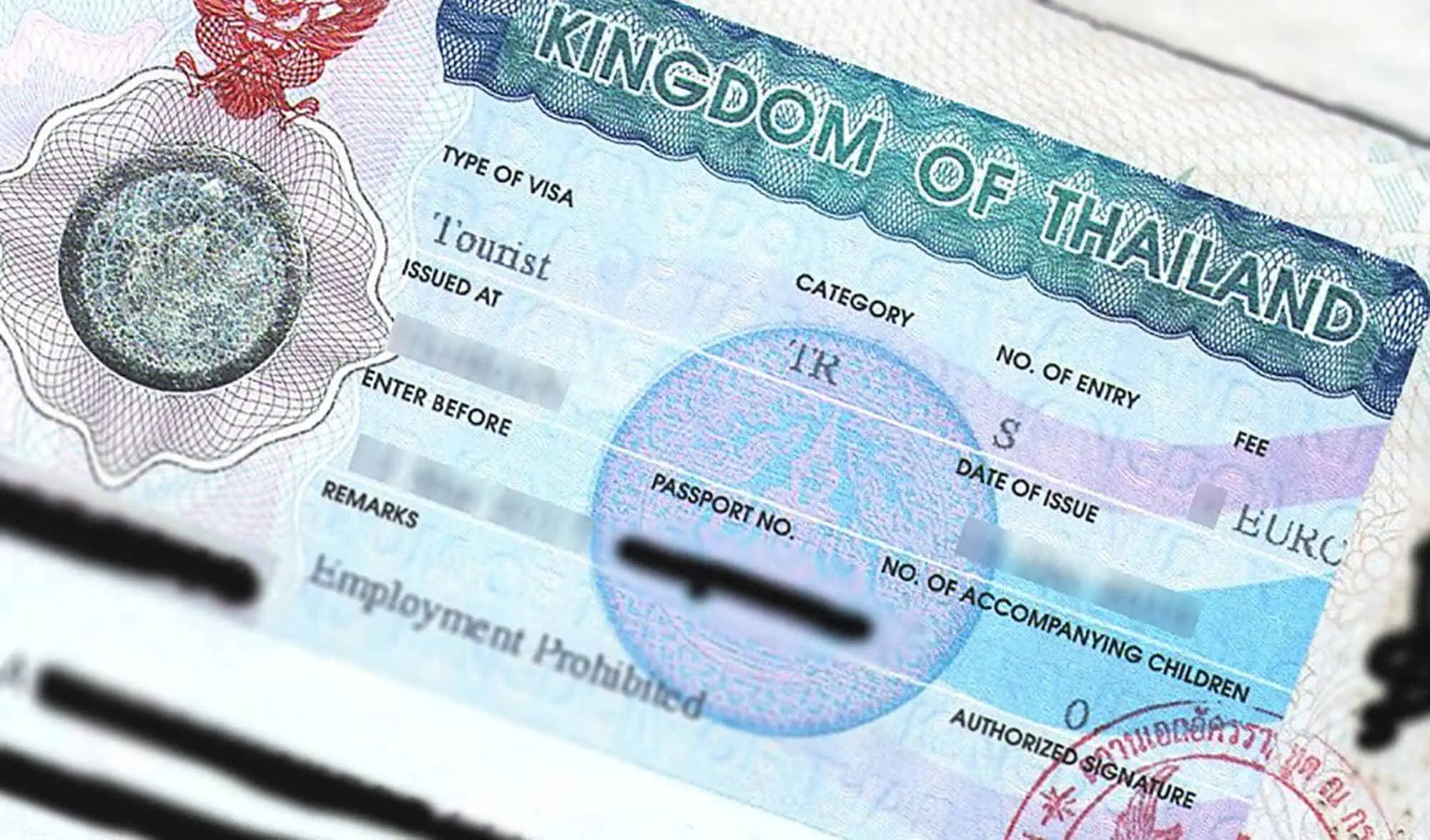
This image is property of www.visatraveler.com.
Visa Exemptions
List of countries eligible for visa-free entry
Thailand offers visa-free entry to citizens of several countries. These countries include but are not limited to the United States, United Kingdom, Canada, Australia, Germany, France, and Singapore. Visa-exempt travelers are granted a stay of up to 30 days for tourism purposes. However, if you wish to stay longer or engage in certain activities, you will need to obtain an appropriate visa.
Duration of stay for visa-exempt travelers
For visa-exempt travelers, the maximum duration of stay in Thailand is typically 30 days. This period is counted from the date of your arrival. It’s important to note that overstaying your permitted duration can result in fines, detention, and even deportation. If you need to stay longer than 30 days, you must apply for a proper visa before your arrival or visit a Thai immigration office to extend your stay.
Tourist Visa
Application process for a tourist visa
If you are planning to stay in Thailand for longer than 30 days or engage in activities beyond tourism, you need to apply for a tourist visa. The application process for a tourist visa can be done at the Thai embassy or consulate in your home country. You will need to submit the required documents, including a completed visa application form, a valid passport with at least six months’ validity, a passport-sized photograph, proof of accommodation in Thailand, proof of financial means, and a visa fee.
Required documents for a tourist visa
The documents required for a tourist visa application include:
- Completed visa application form
- Original passport with at least six months of validity
- Passport-sized photograph
- Proof of accommodation in Thailand (e.g., hotel reservation)
- Proof of financial means (e.g., bank statements)
- Visa fee (varies depending on nationality)
Validity and duration of a tourist visa
A tourist visa for Thailand is usually valid for 60 days from the date of entry. The duration of stay granted may vary, but it is typically up to 60 days as well. However, the Thai immigration authorities have the discretion to grant a shorter duration depending on the purpose of travel and supporting documents provided. If you wish to extend your stay beyond the initial 60 days, you can visit a Thai immigration office to apply for an extension.
Visa on Arrival
Eligibility criteria for a visa on arrival
Thailand offers a visa on arrival to citizens of certain countries who arrive by air. To be eligible for a visa on arrival, you must hold a passport from one of the eligible countries (e.g., China, India, Russia) and have a confirmed return flight ticket. The purpose of your visit must be for tourism or attending business meetings, conferences, or exhibitions.
Application process for a visa on arrival
Upon arrival at the airport, you can proceed to the designated visa on arrival counters. You will need to complete an application form, provide a recent passport-sized photograph, show proof of a return flight ticket, and pay the visa fee in cash (usually in Thai Baht). The immigration officer will then process your visa on arrival.
Duration and conditions for a visa on arrival
A visa on arrival allows you to stay in Thailand for a maximum duration of 15 days. It is important to note that this type of visa cannot be extended or converted into another type of visa, and you must exit the country within the permitted duration. If you plan to stay longer or engage in activities that exceed the visa on arrival’s limitations, it’s advisable to obtain a suitable visa before your arrival.
Non-Immigrant Visas
Different types of non-immigrant visas
Thailand offers several types of non-immigrant visas, each catering to specific purposes of visit. The most common non-immigrant visas include the B visa (business), ED visa (education), O visa (retirement), and O-A visa (long-stay). The requirements and application procedures for each visa category may vary, so it’s essential to determine the specific visa type you need based on your purpose of visit.
Application process for non-immigrant visas
Applications for non-immigrant visas should be made at the Thai embassy or consulate in your home country. The specific requirements for each visa category can be obtained from the respective embassy or consulate websites. Generally, you will need to complete a visa application form, provide a valid passport, submit relevant supporting documents, and pay the required visa fee.
Specific requirements for each non-immigrant visa category
The requirements for non-immigrant visas vary depending on the category. For example, the B visa (business) may require a letter of invitation from a Thai company, while the ED visa (education) may require an acceptance letter from an educational institution in Thailand. The O visa (retirement) may require proof of retirement or a pension, and the O-A visa (long-stay) may require proof of health insurance and financial means. It’s crucial to familiarize yourself with the specific requirements for the visa category you intend to apply for.
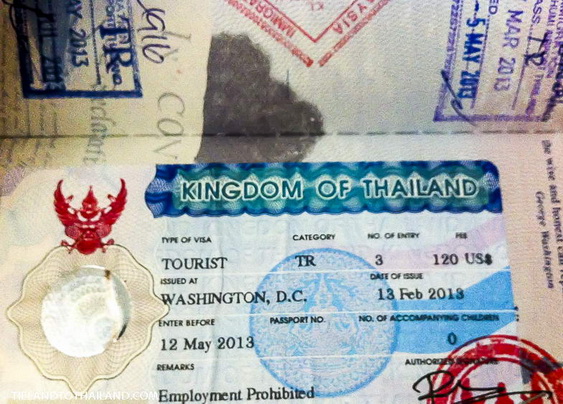
This image is property of www.tielandtothailand.com.
Work Permits
Applying for a work permit in Thailand
If you plan to work in Thailand, you will need to obtain a work permit in addition to a non-immigrant B visa. A work permit allows you to legally work and earn an income in Thailand. The application process for a work permit should be initiated by your prospective employer in Thailand. They will need to submit the necessary documents and apply on your behalf.
Requirements for obtaining a work permit
To obtain a work permit, you will need to meet certain requirements. These requirements include having a non-immigrant B visa, a valid job offer from a Thai employer, relevant qualifications or experience for the job, and clearance from local authorities, among others. It’s important to note that work permits are specific to the employer and job position, and changing employers or job positions will require a new work permit.
Validity and conditions of a work permit
A work permit in Thailand is typically valid for one year and can be renewed annually. It allows you to work legally in the country within the scope of the approved job position. It’s crucial to comply with the conditions and restrictions stated on the work permit, such as only working for the specified employer and engaging in work activities related to the approved job position.
Long-Stay Visas
Long-stay visa options for Thailand
Thailand offers several long-stay visa options for individuals who wish to stay in the country for an extended period. The most common long-stay visas include the O-A visa (long-stay), the O visa (retirement), and the ED visa (education). These visas typically grant a stay of one year or longer, depending on the type and purpose of the visa.
Application process for long-stay visas
The application process for long-stay visas may vary depending on the visa type. Generally, you will need to submit a completed visa application form, a valid passport, relevant supporting documents, and pay the required visa fee. The specific requirements for each long-stay visa category can be obtained from the Thai embassy or consulate in your home country.
Required documents for long-stay visas
The required documents for long-stay visa applications may vary depending on the visa category. For example, the O-A visa (long-stay) may require proof of health insurance, while the O visa (retirement) may require proof of retirement or a pension. The ED visa (education) may require an acceptance letter from an educational institution in Thailand. It’s essential to familiarize yourself with the specific documents required for the long-stay visa category you wish to apply for.
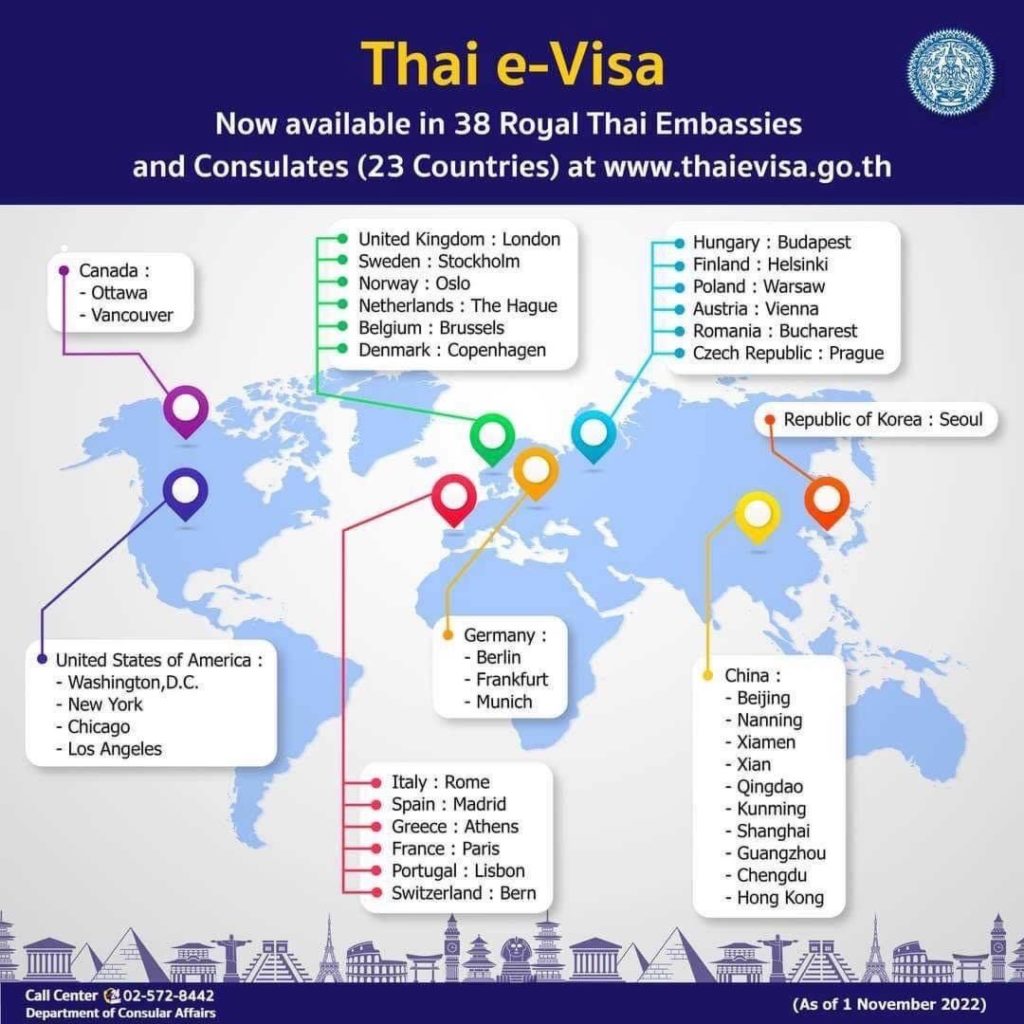
This image is property of cdn-aedlj.nitrocdn.com.
Student Visas
Applying for a student visa in Thailand
If you plan to study in Thailand, you will need to apply for a student visa, also known as an ED visa. The application process for a student visa should be initiated by the educational institution in Thailand where you have been accepted. They will provide you with the necessary documents and guidance on the application process.
Documents needed for a student visa
To apply for a student visa in Thailand, you will generally need the following documents:
- Completed visa application form
- Original passport with at least six months of validity
- Passport-sized photograph
- Acceptance letter from the educational institution in Thailand
- Proof of financial means to support your studies and stay in Thailand
- Visa fee (varies depending on nationality)
Conditions and limitations of a student visa
A student visa allows you to reside in Thailand for the purpose of studying. It is typically valid for 90 days, and you will need to extend it at a Thai immigration office within Thailand. With a student visa, you are allowed to study and participate in educational activities at the designated educational institution. However, you are not permitted to engage in any form of employment or earn an income during your stay.
Retirement Visas
Requirements for a retirement visa
Thailand offers a retirement visa, also known as an O visa, to individuals aged 50 years or older who wish to retire in the country. To be eligible for a retirement visa, you must meet certain requirements, including having a valid passport, proof of retirement or a pension with a minimum monthly income, and proof of health insurance coverage.
Application process for a retirement visa
The application process for a retirement visa can be done at the Thai embassy or consulate in your home country. You will need to submit the required documents, including a completed visa application form, a valid passport, proof of retirement or a pension, proof of health insurance coverage, and pay the visa fee. Upon approval, the retirement visa allows you to stay in Thailand for one year, after which it can be renewed annually.
Financial qualifications for a retirement visa
To qualify for a retirement visa in Thailand, you must show proof of financial means. This can be in the form of a monthly pension or a deposit in a Thai bank account. The minimum monthly income requirement and bank deposit amount may vary depending on the nationality. It’s important to check the specific requirements for your country of residence before applying for a retirement visa.
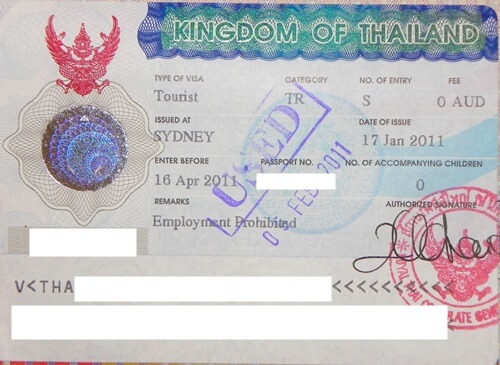
This image is property of www.dontworryjusttravel.com.
Business Visas
Obtaining a business visa for Thailand
If you plan to engage in business activities in Thailand, you will need to obtain a non-immigrant B visa for business purposes. This visa allows you to stay in Thailand for the purpose of conducting business, attending meetings, or exploring business opportunities. The application process for a business visa should be initiated at the Thai embassy or consulate in your home country.
Required documentation for a business visa
To apply for a business visa, you will generally need the following documents:
- Completed visa application form
- Original passport with at least six months of validity
- Passport-sized photograph
- Letter of invitation from a Thai company or organization
- Proof of financial means to support your stay in Thailand
- Visa fee (varies depending on nationality)
Conditions and restrictions for a business visa
With a business visa, you are permitted to engage in business activities in Thailand, attend meetings or conferences, and explore business opportunities. However, it’s important to note that a business visa does not allow you to work or earn an income in Thailand. If you plan to work for a Thai company or establish your own business, you will need to obtain a work permit in addition to the business visa.
Conclusion
In conclusion, understanding and complying with the visa regulations is crucial when planning a visit to Thailand. Whether you are visiting for tourism, education, retirement, or business purposes, there are specific visa requirements and procedures to follow. From visa exemptions to tourist visas, visa on arrival, non-immigrant visas, work permits, long-stay visas, student visas, retirement visas, and business visas, Thailand offers a wide range of options to cater to different needs.
It’s essential to familiarize yourself with the specific visa requirements, application processes, and limitations of each visa category. Ensure that you have all the necessary documents and comply with the conditions stated on your visa. By doing so, you can enjoy a stress-free and enjoyable trip to Thailand, knowing that you have followed the proper procedures and met all the required visa regulations. So, pack your bags, have your visa in hand, and get ready to explore the vibrant and beautiful country of Thailand!
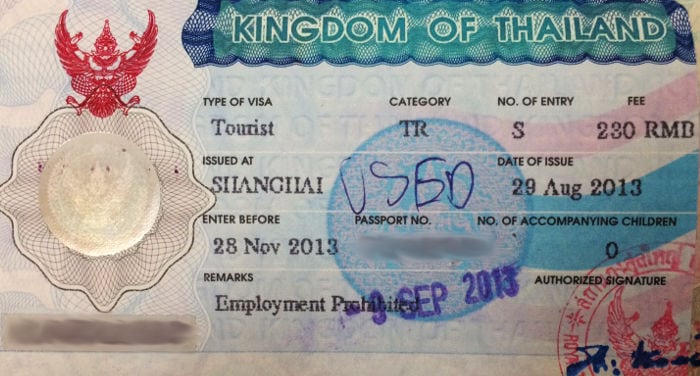
This image is property of www.saporedicina.com.






